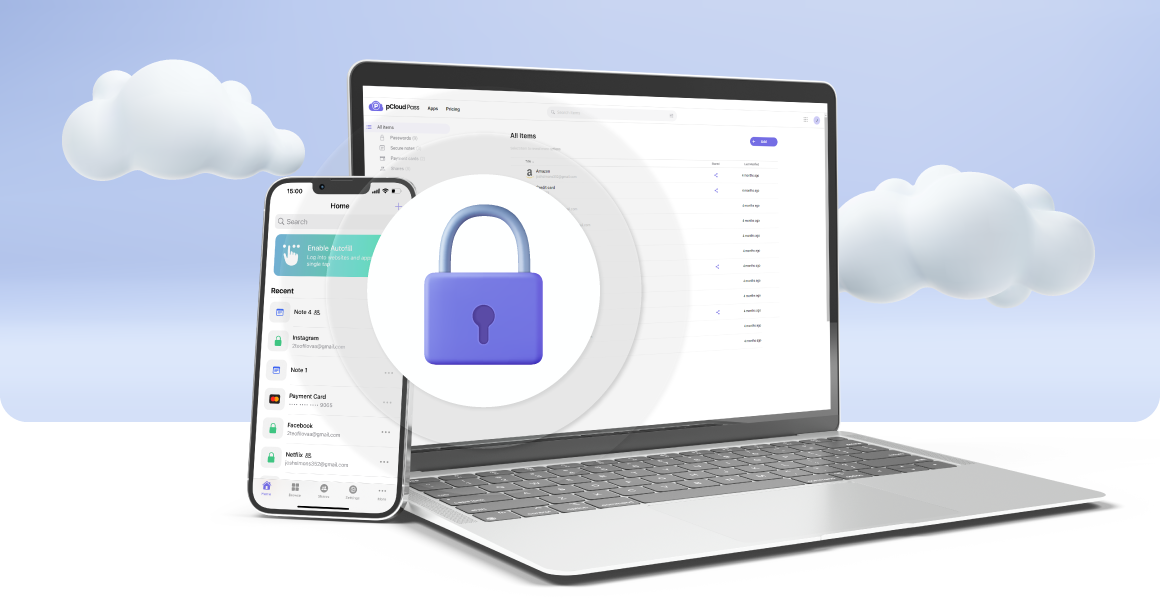The Future of Passwords: Navigating Beyond Traditional Authentication

It’s World Password Day again, and we’re very excited to talk about one of our favorite topics – you (and hopefully no hackers) guessed it – passwords! So far, we’ve covered the history of passwords, what a strong password looks like, and how to check if your passwords have been hacked. Today, let’s explore how passwords, which have long served as the cornerstone of digital security, are evolving amidst the constant evolution of cyber threats and technological progress. Here are some key trends shaping the future of passwords:
1. Biometric Authentication
Biometric authentication, which uses unique biological traits such as fingerprints, facial recognition, or iris scans to verify identity, is gaining traction as a more secure and user-friendly alternative to traditional passwords. Biometric data is inherently more difficult to replicate or steal than passwords, offering a higher level of security and convenience for users. As biometric technology becomes more widespread and affordable, it is poised to play a significant role in the future of authentication.
2. Multi-Factor Authentication (MFA)
Multi-factor authentication (MFA) combines two or more independent credentials to verify a user’s identity, adding an extra layer of security beyond passwords alone. Common forms of MFA include SMS codes, hardware tokens, and biometric factors. MFA mitigates the risk of unauthorized access by requiring attackers to possess multiple factors to compromise an account. As organizations prioritize security and compliance, the adoption of MFA is expected to increase, making passwords just one component of a more robust authentication framework.
3. Passwordless Authentication
Passwordless authentication methods, such as token-based authentication, push notifications, and single sign-on (SSO) solutions, are gaining momentum as viable alternatives to traditional passwords. These methods eliminate the need for users to remember complex passwords, reducing the risk of password-related security incidents such as phishing and credential theft. By leveraging technologies like biometrics, hardware tokens, and cryptographic keys, passwordless authentication offers a more secure and user-friendly authentication experience.
4. Behavioral Biometrics
Behavioral biometrics analyze unique patterns in user behavior, such as typing rhythm, mouse movements, and device usage patterns, to authenticate users without the need for explicit input. By continuously monitoring and analyzing user behavior, behavioral biometrics can detect anomalies indicative of unauthorized access attempts and prompt additional authentication measures. As organizations seek more seamless and frictionless authentication solutions, behavioral biometrics are expected to gain prominence as a complementary authentication method to traditional passwords.
5. Continuous Authentication
Continuous authentication aims to continuously verify a user’s identity throughout their session based on various factors, such as behavior, location, and device characteristics. By dynamically adapting authentication requirements based on the perceived risk level, continuous authentication provides a more adaptive and context-aware approach to security. As the threat landscape evolves and attackers become more sophisticated, continuous authentication offers a proactive defense mechanism against unauthorized access and data breaches.
The future of passwords is characterized by innovation, diversity, and adaptability. With that being said, we’d also like to take another look at the current state of passwords. Now, having a password manager that you get along with is crucial, no matter what field of work you are in. A good password manager helps you create, store, and organize strong passwords with ease, protecting them and you in the process.
6. pCloud Pass updates
Our very own password manager pCloud Pass, just got another significant refresh and we’re excited to share its new updates with you! With the new ‘Autosave’ function for the browser extension, pCloud Pass now saves your passwords automatically to your account when you’ve successfully logged in to the desired website. You can edit or undo the password details directly from the success confirmation, or mark the current website as ‘Never save passwords for’. Other new functionalities include improved look and feel, organizational and ease-of-use improvements such as an easier login during two-step login processes and a dropdown marker for the selected credentials. Last but not least, you can make use of the new search functionality within the Extension, if you can’t find the desired password in the ‘Autofill’ suggestions.
Give yourself the gift of ease of mind, knowing that your passwords are safe with us. Try it out for free today!